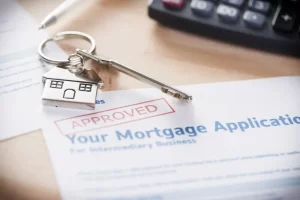Owning a vacation home in North Carolina is a dream for many, offering a personal…
Conditional Mortgage Approval: Your Path to Homeownership

Understanding Conditional Mortgage Approval: Your Path to Homeownership
Embarking on the home-buying journey can be both exciting and overwhelming. One pleasant surprise you might encounter is receiving conditional approval for a mortgage. But what does this mean, and what are your next steps?
What Is Conditional Approval?
Conditional approval signifies that your mortgage underwriter is likely to approve your loan application, provided you meet certain conditions. The underwriter responsible for assessing your financial viability will have reviewed your documents and identified areas needing further verification.
While conditional approval is a promising step forward, it’s not a guarantee. It does, however, position you more favorably than prequalification, which is a basic, preliminary assessment based on your self-reported financial information.
See What You Qualify For:
Common Conditions for Approval
Here are some typical conditions you might need to satisfy to move from conditional to full approval:
-
- Proof of Income: Pay stubs, W-2 forms, tax returns, and employment verification.
- Bank Statements: Recent statements to verify assets and account balances.
- Credit Verification: A detailed review of your credit report and scores.
- Homeowners Insurance: Proof that the property will be insured.
- Appraisal Report: An assessment to confirm the property’s value and condition.
- Debt-to-Income Ratio: Document all debts and liabilities to ensure they fall within guidelines.
- Additional Documentation: This could include letters of explanation for large deposits or withdrawals, divorce decrees, or other specific items based on individual financial situation
This list is not exhaustive; your underwriter may request other documentation during the process.
Advantages of Conditional Loan Approval
Getting pre-approved for a mortgage is a smart move before house hunting, but conditional approval can give you a significant edge. Here’s why:
- Stronger Buyer Position: In a competitive market, conditional approval shows sellers you are a serious and qualified buyer, potentially giving you an advantage in a bidding war.
- Builder Confidence: If you’re planning to build a home, many builders require conditional approval before starting construction to ensure the financial security of the project.
- Faster Closing: With much of the underwriting process already completed, conditional approval can expedite closing, bringing you closer to moving into your new home.
Comparing Mortgage Approvals
Different stages of mortgage approvals can be confusing. Here’s how they differ:
- Prequalification: This is an initial step where you provide basic financial information to get an estimate of how much you can borrow. It’s less comprehensive than conditional approval.
- Conditional Approval: A more detailed process than prequalification, conditional approval involves the lender verifying your credit history and score. However, it doesn’t guarantee final approval since the underwriter hasn’t fully reviewed all the details.
- Unconditional Approval: Also known as formal approval, this is the final step after conditional approval, where the underwriter has verified all information, including the property’s appraisal and title.
- Verified Approval: A Verified Approval Letter (VAL) from Certified Home Loans means your credit, income, and assets have been thoroughly vetted, making your financing highly secure.
When Can Conditional Approvals Be Denied?
Even with Conditional Approval, some factors can lead to a denial, such as:
- Incurring new debt
- Inability to verify financial documents
- Missing loan condition deadlines
- Issues with the property title or appraisal
- New income instability
To avoid denial, maintain financial stability and promptly provide any requested information to your loan officer. Using a quality Mortgage Calculator can be a valuable resource throughout the process.
How Long Until Closing After Conditional Approval?
The timeline from Conditional Approval to Closing Day varies. Typically, the conditional approval process takes 1-2 weeks, followed by final verification and scheduling of the closing date soon after. The key to a smooth and quick closing is addressing any underwriting issues promptly.
The Bottom Line
Conditional approval is a strong indication that your mortgage will be approved. Stay proactive in providing your lender with the necessary documents to move swiftly toward hearing “Clear to Close!” Ready to take the first step? Apply with Certified Home Loans today and explore your mortgage options with confidence. Call us today: 919-510-1108.




